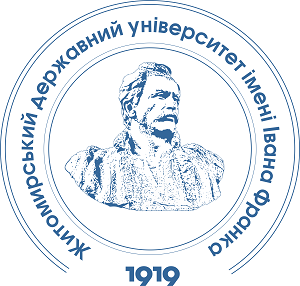THE INFLUENCE OF PSYCHOLOGICAL WELL-BEING ON THE LEVEL OF INTERNET ADDICTION IN EARLY ADULTHOOD
DOI:
https://doi.org/10.32782/psy-2023-2-6Keywords:
psychological well-being, Internet addiction, positive emotions, involvement, relationships, personal meaning, goal achievementAbstract
The article describes the results of an experimental study of the influence of psychological wellbeing on the level of Internet addiction in early adulthood. The research procedure follows an ex-post-facto quasi-experimental design with one experimental and one control group. At the first stage of the study, the characteristics of psychological well-being were analyzed using the «PERMA-profiler for the evaluation of wellbeing » (M. Seligman), the «Satisfaction With Life Scale (SWLS)» (E. Diener) and the «Subjective Happiness Scale (SHS)» (S. Lyubomirsky). The experimental group consists of subjects with survey results showing low and below average levels of psychological well-being. The control group consists of subjects with survey results showing high, average and above average levels of psychological well-being. At the second stage of the study, the level of Internet addiction was analyzed using the «Internet Addiction Test (InAT)» (K. Young) separately in the experimental and control groups. Checking of the statistical significance of the study results was conducted by using the «Student`s T-test (For Independent Samples)». The subjects of the experimental group showed both a tendency to be partially satisfied with life and a tendency to experience complete dissatisfaction with life. In contrast, those studied in the control group demonstrated a predominantly high level of psychological life satisfaction. Representatives of the control group more often experience positive emotions, are more satisfied with their relationships with others, feel the meaning and significance of their lives, and more often achieve their goals than those studied in the experimental group. Analysis of Internet addiction in the experimental and control groups showed that neither professional nor educational activities are the main purpose of using the Internet for those in the experimental group. Whereas the time spent on the Internet by the representatives of the control group is mainly associated with solving professional and educational problems. A statistically significant difference in the indicators of Internet addiction in the experimental and control groups confirms that such indicators of psychological well-being as positive emotions, involvement, relationships, personal meaning and goal achievement reduce the risk of developing Internet addiction in early adulthood.
References
Церковний А. Аспекти формування Інтернет-залежності. Соціальна психологія. 2004. № 5(7). C. 149–154.
Argyle M. The psychology of happiness (2nd ed.). London : Routledge, 2001. 288 р.
Diener E. D., Emmons R. A., Larsen R. J., Griffin S. The Satisfaction with Life Scale. Journal of Personality Assessment. 1985. Vol. 49, № 1. P. 71–75. URL: https://doi.org/10.1207/s15327752jpa4901_13.
Ryff C. D. Happiness is everything, or is it? Explorations on the meaning of psychological well-being. Journal of Personality and Social Psychology. 1989. № 57(6). Р. 1069–1081. URL: https://doi.org/10.1037/0022-3514.57.6.1069.
Seligman M. Authentic happiness: Using the new positive psychology to realize your potential for lasting fulfillment. New York : Free Press, 2002. 336 p.
Young K. S. Internet Addiction Test (IAT). Stoelting, 2017. 11 р.






